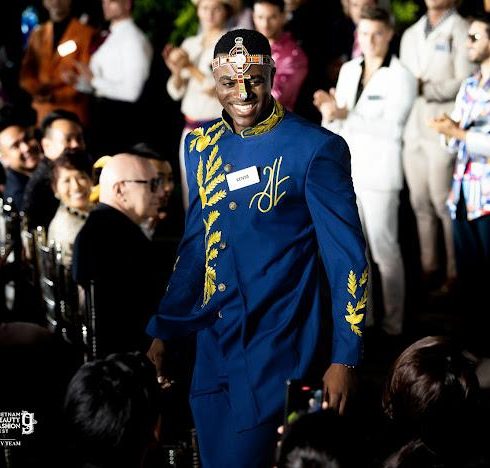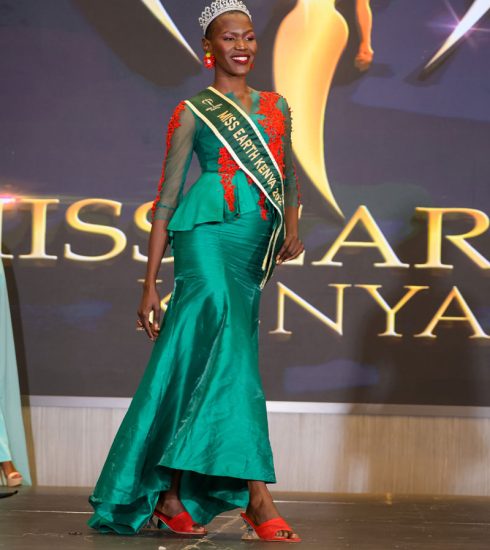- Fesheni Africa
- July 11, 2025
When you hear 'Beauty Pageant', sustainability may not be the first thing that comes to mind—but as the National Director for Miss Earth Kenya, Beverly Jalang'o is changing that.
A Creative, Sustainability Advocate/Analyst, CEO and Founder for ProSABA and the Kenya Country Representative for KWITU (Kenyan Women in the US), Beverly embodies a modern leader committed to cultural and environmental change.
A Pageant With a Purpose
Since its global debut in 2001, Miss Earth has been more than a beauty contest. It’s the world’s first sustainability-themed pageant, promoting environmental and cultural sustainability long before it became a trending topic. Miss Earth Kenya, the local chapter of this global initiative, functions as an annual mentorship program designed to nurture promising leaders in sustainability advocacy.
In Kenya, where environment and culture are the backbone of tourism, Miss Earth Kenya has taken a holistic approach. Contestants are trained at bootcamp on key issues in environmental advocacy, cultural preservation, and leadership. These queens and a number of the contestants also run projects in their respective grassroot locales to drive the sustainability needle.
Shifting Perceptions in African Pageantry
Beauty pageantry in Kenya—and across Africa—is evolving. No longer confined to traditional ideals, pageants are emerging as powerful platforms for youth leadership and activism. Pageants therefore now provide a unique platform for multi approach impact and traction in sustainability advocacy; volunteering, awareness, mentorship, networking,and showcasing etc.
Take Winfred Adah Omwakwe, Miss Earth Kenya 2002, who made history by winning the international Miss Earth crown—the only Kenyan to do so. Today, she leads environmental initiatives in Kisumu, supported by Kisumu’s First Lady, Mrs. Nyong’o. Similarly, Miss Tanzania 2004, Faraja Kotta, has turned her platform into long-term impact in education reform.
Across Africa, governments are recognizing the power of pageant queens. Miss Earth Liberia 2024, Mary W. Kermon, was appointed to the Environmental Ministry, and Miss Botswana 2024, Lesego Chombo, is now the country’s youngest Cabinet Minister, heading the Youth Ministry.
Fashion as Advocacy
Advocacy for the most part is a voluntary, non paying vocation and a big challenge is contestants who look at it purely as a beauty contest in a pursuit to “collect crowns” and not passionate about the cause rather the perceived perks, which in turn impacts their advocacy and therefore the public perception of them and their role.
In an era of conscious fashion, Miss Earth Kenya has embraced sustainable fashion as a central theme. Contestants now wear outfits that are reused, repurposed, and responsibly made, merging creativity with sustainability.
The 2024 Miss Earth Kenya, Faith Wanyama, won bronze in the international heritage dress category and has launched a recycled fashion initiative in Busia County.
Milestones of Impact
Miss Earth Kenya’s journey is marked by a series of powerful milestones:
- 2002: Winfred Adah Omwakwe brings home the international crown.
- 2023: Launch of the Greenleaf Fundraiser, transforming transitional public spaces.
- 2024: Faith Wanyama’s recycled fashion project gains national recognition.
- 2025: Launch of TeaTalks, a YouTube podcast discussing youth, fashion, culture, and sustainability.
- 2025: Celebrating 25 years of Miss Earth’s global impact.
More Than Just Crowns
Miss Earth Kenya’s selection criteria focus on mobilization, fundraising, interpersonal skills, presentation and public speaking—not just beauty. The goal? To identify individuals truly passionate about sustainability, with a willingness to create change.
Still, the journey is not without challenges. In a saturated pageant scene, some participants may chase glamour over impact. We see more pageants and a number now cater for both Male and Female pageants, with a rise in children and teen pageants too.
But Miss Earth Kenya’s ripple effect—#ImpactAndTraction—is built on mentorship, visibility, and real change.
A Network Rooted in Purpose
Advocacy for the most part is a voluntary, non paying vocation and a big challenge is contestants who look at it purely as a beauty contest in a pursuit to “collect crowns” and not passionate about the cause rather the perceived perks, which in turn impacts their advocacy and therefore the public perception.
The journey as an organization has been productive and a very humbling one with a renewed appreciation in what a collective can accomplish with a common goal and passion. Despite shifts in leadership and financial constraints, Miss Earth Kenya continues to thrive through the commitment of its directors, partners, and queens.
As an organization our legacy is simply the impact that creates impact. Impacting our cohorts to create impact in an effective way, what we call the ripple effect of #impactandtraction.
In a world that often values image over substance, Miss Earth Kenya proves that beauty and advocacy can—and must—walk hand in hand.







